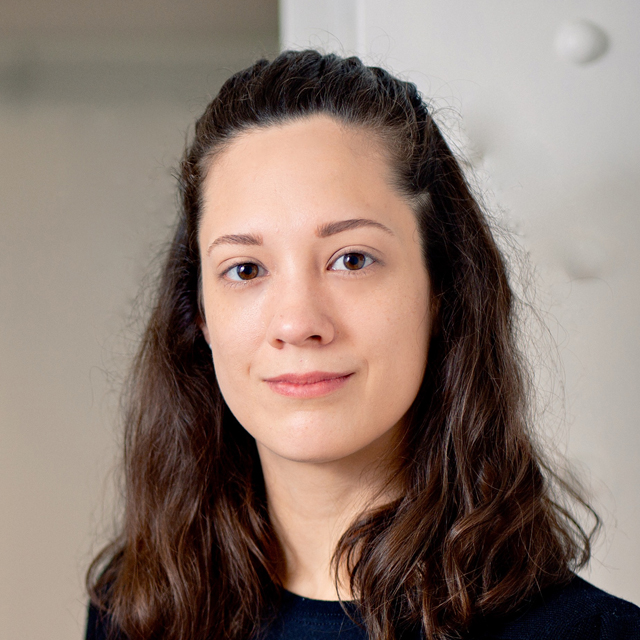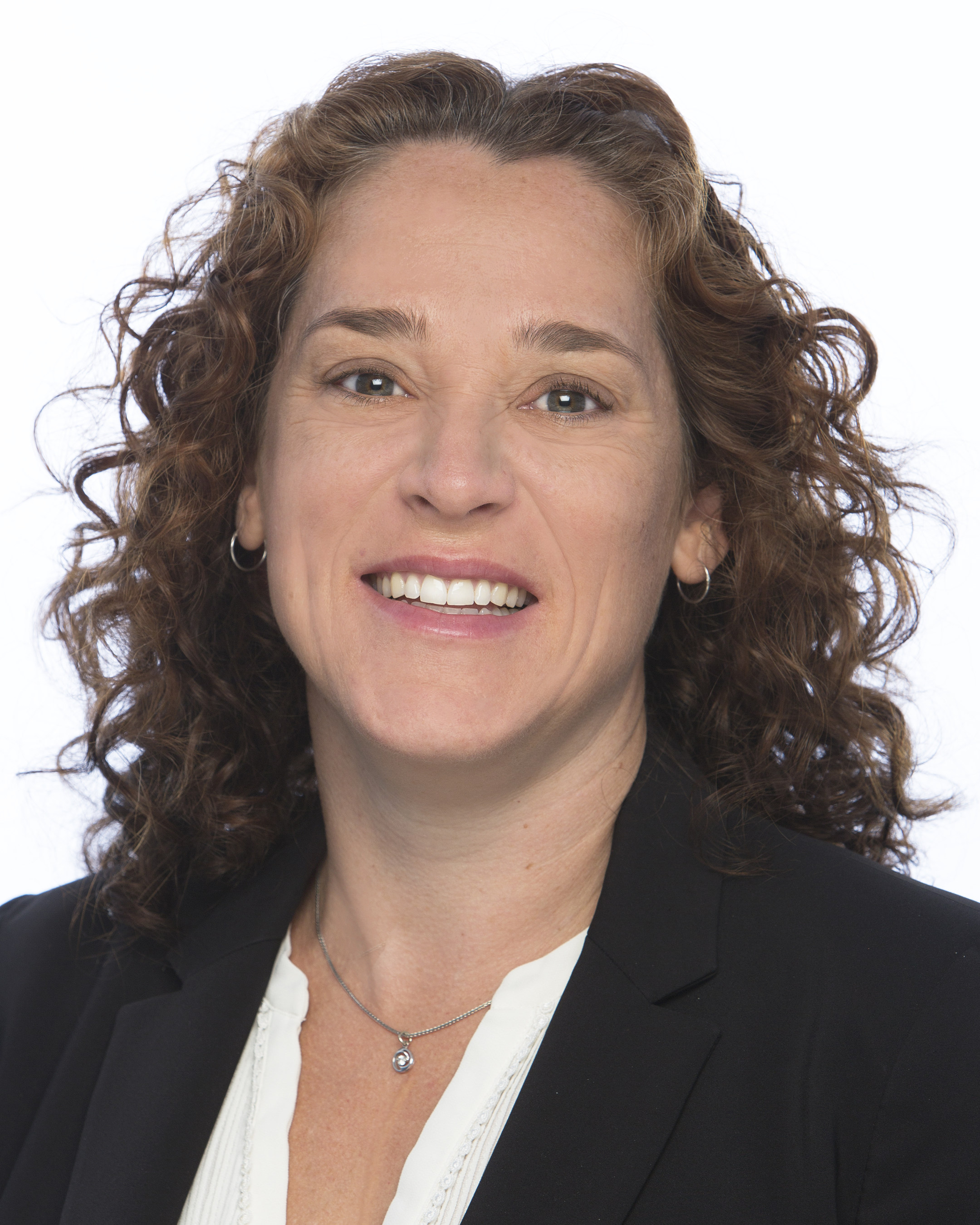Responsible AI activities
 Keynote speaker: Julia Stoyanovich
Keynote speaker: Julia Stoyanovich
New York University
"Building Data Equity Systems"
Equity as a social concept — treating people differently depending on their endowments and needs to provide equality of outcome rather than equality of treatment — lends a unifying vision for ongoing work to operationalize ethical considerations across technology, law, and society. In my talk I will present a vision for designing, developing, deploying, and overseeing data-intensive systems that consider equity as an essential objective. I will discuss ongoing technical work, and will place this work into the broader context of policy, education, and public outreach.
Biography: Julia Stoyanovich is an Institute Associate Professor of Computer Science & Engineering at the Tandon School of Engineering, Associate Professor of Data Science at the Center for Data Science, and Director of the Center for Responsible AI at New York University (NYU). Her research focuses on responsible data management and analysis: on operationalizing fairness, diversity, transparency, and data protection in all stages of the data science lifecycle. She established the "Data, Responsibly" consortium and served on the New York City Automated Decision Systems Task Force, by appointment from Mayor de Blasio. Julia developed and has been teaching courses on Responsible Data Science at NYU, and is a co-creator of an award-winning comic book series on this topic. In addition to data ethics, Julia works on the management and analysis of preference and voting data, and on querying large evolving graphs. She holds M.S. and Ph.D. degrees in Computer Science from Columbia University, and a B.S. in Computer Science and in Mathematics & Statistics from the University of Massachusetts at Amherst. She is a recipient of an NSF CAREER award and a Senior Member of the ACM.
Panel on ethical implications of AI
Panelists
 |
Luke Stark, Faculty of Information and Media Studies, Western University Luke Stark is an Assistant Professor in the Faculty of Information and Media Studies at Western University in London, ON. His work interrogating the historical, social, and ethical impacts of computing and AI technologies has appeared in journals including The Information Society, Social Studies of Science, and New Media & Society, and in popular venues like Slate, The Globe and Mail, and The Boston Globe. Luke was previously a Postdoctoral Researcher in AI ethics at Microsoft Research, and a Postdoctoral Fellow in Sociology at Dartmouth College; he holds a PhD from the Department of Media, Culture, and Communication at New York University, and a BA and MA from the University of Toronto. |
 |
Nidhi Hegde, Associate Professor in Computer Science and Amii Fellow at the University of Alberta Nidhi is a Fellow and Canada CIFAR AI Chair at Amii and an Associate Professor in the Department of Computing Science at the University of Alberta. Before joining UAlberta, she spent many years in industry research labs. Most recently, she was a Research team lead at Borealis AI (a research institute at Royal Bank of Canada), where her team worked on privacy-preserving methods for machine learning models and other applied problems for RBC. Prior to that, she spent many years in research labs in Europe working on a variety of interesting and impactful problems. She was a researcher at Bell Labs, Nokia, in France from January 2015 to March 2018, where she led a new team focussed on Maths and Algorithms for Machine Learning in Networks and Systems, in the Maths and Algorithms group of Bell Labs. She also spent a few years at the Technicolor Paris Research Lab working on social network analysis, smart grids, privacy, and recommendations. Nidhi is an associate editor of the IEEE/ACM Transactions on Networking, and an editor of the Elsevier Performance Evaluation Journal. |
 |
Karina Vold, Assistant Professor, Institute for the History and Philosophy of Science and Technology, University of Toronto Dr. Karina Vold is an Assistant Professor at the Institute for the History and Philosophy of Science and Technology at the University of Toronto. She is also a Faculty Affiliate at the U of T Schwartz Reisman Institute for Technology and Society, a Faculty Associate at the U of T Centre for Ethics, and an Associate Fellow at the University of Cambridge’s Leverhulme Centre for the Future of Intelligence. Vold specialises in Philosophy of Cognitive Science and Philosophy of Artificial Intelligence, and her recent research has focused on human autonomy, cognitive enhancement, extended cognition, and the risks and ethics of AI. |
 |
Elissa Strome, Executive Director, Pan-Canadian Artificial Intelligence Strategy at CIFAR Elissa is Executive Director, Pan-Canadian Artificial Intelligence Strategy at CIFAR, working with research leaders across the country to implement Canada’s national research strategy in AI. Elissa completed her PhD in Neuroscience from the University of British Columbia in 2006. Following a post-doc at Lund University, in Sweden, she decided to pursue a career in research strategy, policy and leadership. In 2008, she joined the University of Toronto’s Office of the Vice-President, Research and Innovation and was Director of Strategic Initiatives from 2011 to 2015. In that role, she led a small team dedicated to advancing the University’s strategic research priorities, including international institutional research partnerships, the institutional strategy for prestigious national and international research awards, and the establishment of the SOSCIP research consortium in 2012. From 2015 to 2017, Elissa was Executive Director of SOSCIP, leading the 17-member industry-academic consortium through a major period of growth and expansion, and establishing SOSCIP as Ontario’s leading platform for collaborative research and development in data science and advanced computing. |
Tutorial on AI and the Law
Prof. Maura R. Grossman, University of Waterloo, and
Hon. Paul W. Grimm, United States District Court for the District of Maryland
AI applications are becoming more and more ubiquitous in almost every field of endeavor, and the same is true as to the legal industry. This panel, consisting of an experienced lawyer and computer scientist, and a U.S. federal trial court judge, will discuss how AI is currently being used in the legal profession, what adoption has been like since the introduction of AI to law in about 2009, what legal and ethical issues AI applications have raised in the legal system, and how a sitting trial court judge approaches AI evidence, in particular, the determination of whether to admit that AI evidence or not, when they are a non-expert.
- How is AI being used in the legal industry today?
- What has the legal industry’s reaction been to legal AI applications?
- What are some of the biggest legal and ethical issues implicated by legal and other AI applications?
- How does a sitting trial court judge evaluate AI evidence when making a determination of whether to admit that AI evidence or not?
- What considerations go into the trial judge’s decision?
- What happens if the judge is not an expert in AI? Do they recuse?
Virtual Meet and Greet on Responsible AI across Canada
Given the many activities that are fortunately happening around the responsible and ethical aspects of AI here in Canada, we are organizing an event in conjunction with Canadian AI 2022 this year to become familiar with what everyone is doing and what activities they are engaged in.
It would be wonderful to have a unified community here in Canada around responsible AI so we can support each other and find ways to more effectively collaborate and synergize. We are aiming for a casual, discussion-oriented event rather than talks or formal presentations.
The meet and greet will be hosted by Ebrahim Bagheri, Eleni Stroulia and Graham Taylor. If you are interested in participating, please email Ebrahim Bagheri (bagheri@ryerson.ca).
The meet and greet at the Laboratory for Systems, Software and Semantics, Ryerson University
Responsible AI Co-chairs
Ebrahim Bagheri
Professor
Electrical, Computer, and Biomedical Engineering, Ryerson University
Website
Eleni Stroulia
Professor, Department of Computing Science
Acting Vice Dean, Faculty of Science
Director, AI4Society Signature Area
University of Alberta
Website











